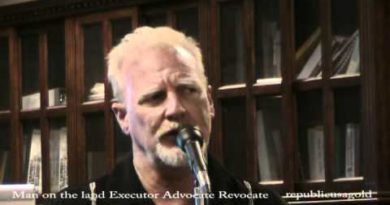Contesting an Indiana Will: What You Need to Know
Dealing with the aftermath of a loved one’s passing involves not only emotional challenges but also navigating the legalities of the probate process. If the decedent left behind a Last Will and Testament, you may question the validity of that document, potentially leading to a Will contest. With that in mind, the Indianapolis attorneys at Frank & Kraft discuss what you need to know about contesting a Will in Indiana.
Challenging a Will in Indiana
When a person passes away, the estate undergoes probate to distribute assets to beneficiaries or heirs. Before this, the decedent’s Last Will and Testament must be authenticated. “Contesting” a Will involves challenging its validity during the probate process.
Requirements for a Valid Last Will and Testament in Indiana
For a Last Will and Testament to be considered valid in the State of Indiana, the following must all be true:
- The Testator must be at least 18 years old.
- The Testator must have had testamentary capacity at the time the Will was executed.
- The Testator must have voluntarily signed the Will in front of two disinterested witnesses.
- The Will must be in writing.
Who Can Contest a Will in Indiana?
Contrary to common belief, not everyone can contest a Will in most states, including Indiana. You must have “standing” to contest a Will. Standing means you have the legal right to participate in the litigation.To have “standing” to initiate a Will contest, you must be an “interested person,” typically a beneficiary, a legal heir, or a creditor of the estate.
Is There a Time Limit for Contesting an Indiana Will?
If you are considering contesting a Will in Indiana it is in your best interest to consult with an experienced probate attorney as soon as possible because there is a time limit within which you must contest a Will. In Indiana, you need to initiate a Will contest within three months from the date the Will is admitted to probate.
Spousal Elective Share in Indiana
A surviving spouse in Indiana can contest a Will, though the law provides an “elective share” that may make the need to contest a Will unnecessary. In Indiana, a spouse can decide to take his/her elective share of $25,000 in lieu of anything left to him/her under the terms of the decedent’s Will.
Legal Grounds for Contesting a Will in Indiana
To contest a Will in Indiana, you must allege and prove specific legal grounds to be successful. You cannot simply contest a Will because you are unhappy with the terms of the Will. Grounds on which a Will could be declared invalid in Indiana include lack of testamentary capacity, undue influence, fraud, improper execution, revocation by a subsequent Will, or other technical issues.
How Do I Start a Will Contest in Indiana?
The process of contesting a Will in Indiana resembles other types of civil litigation. The contestant files a petition with the court, stating the grounds for contesting the Will. If the petition meets legal standards, the court proceeds with discovery and may encourage negotiation. The estate’s Executor, named in the Will, defends the document. If no settlement is reached, the matter goes to trial, where success invalidates the Will, leading to distribution per intestate succession laws if no alternative valid Will is found. Unsuccessful contests result in probate following the terms of the original Will submitted to the court for probate.
Do You Have Questions about Contesting an Indiana Will?
For more information, please join us for an upcoming FREE seminar. If you have additions questions contesting a Will in Indiana, contact an experienced Indianapolis probate attorney at Frank & Kraft by calling (317) 684-1100 to schedule an appointment.
Paul Kraft is Co-Founder and the senior Principal of Frank & Kraft, one of the leading law firms in Indiana in the area of estate planning as well as business and tax planning.
Mr. Kraft assists clients primarily in the areas of estate planning and administration, Medicaid planning, federal and state taxation, real estate and corporate law, bringing the added perspective of an accounting background to his work.
Latest posts by Paul A. Kraft, Estate Planning Attorney (see all)






